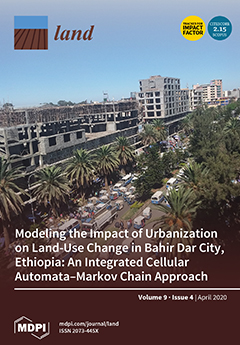Resource information
Sustainable intensification practices (SIPs) involve a process to produce high yields for existing land without affecting the environment. The significance and relevance of SIPs in a Pakistani context demands an investigation. Hence, this study takes the initiative to investigate the determinants regarding the adoption of these practices. Based on the evidence, we selected five SIPs, namely, improved seeds, organic manure, crop rotation, intercropping, and low tillage. Furthermore, this study analyzes the adoption of SIPs with randomly collected data from 612 farmers through multistage sampling. A multivariate probit model (MVP) is employed to analyze the mutually dependent adoption decisions and identify the factors associated with them. The results revealed that education, the area under cultivation, access to information, extension access, social participation, rainfall variability, and temperature increase significantly predict the adoption of SIPs. The adoption of organic manure and crop rotation was highest between all the ecological zones, whereas low tillage was the least adopted practice. Adoption intensity in mixed cropping zones was slightly higher than the other ecological zones. Moreover, the findings also reveal the important synergies amid natural resource management and input-based SIPs. Hence, the study highlights the perseverance and importance of social groups and recommends the government to formulate comprehensive policies to facilitate institutional access and elevate the adoption level amongst the farming community.


